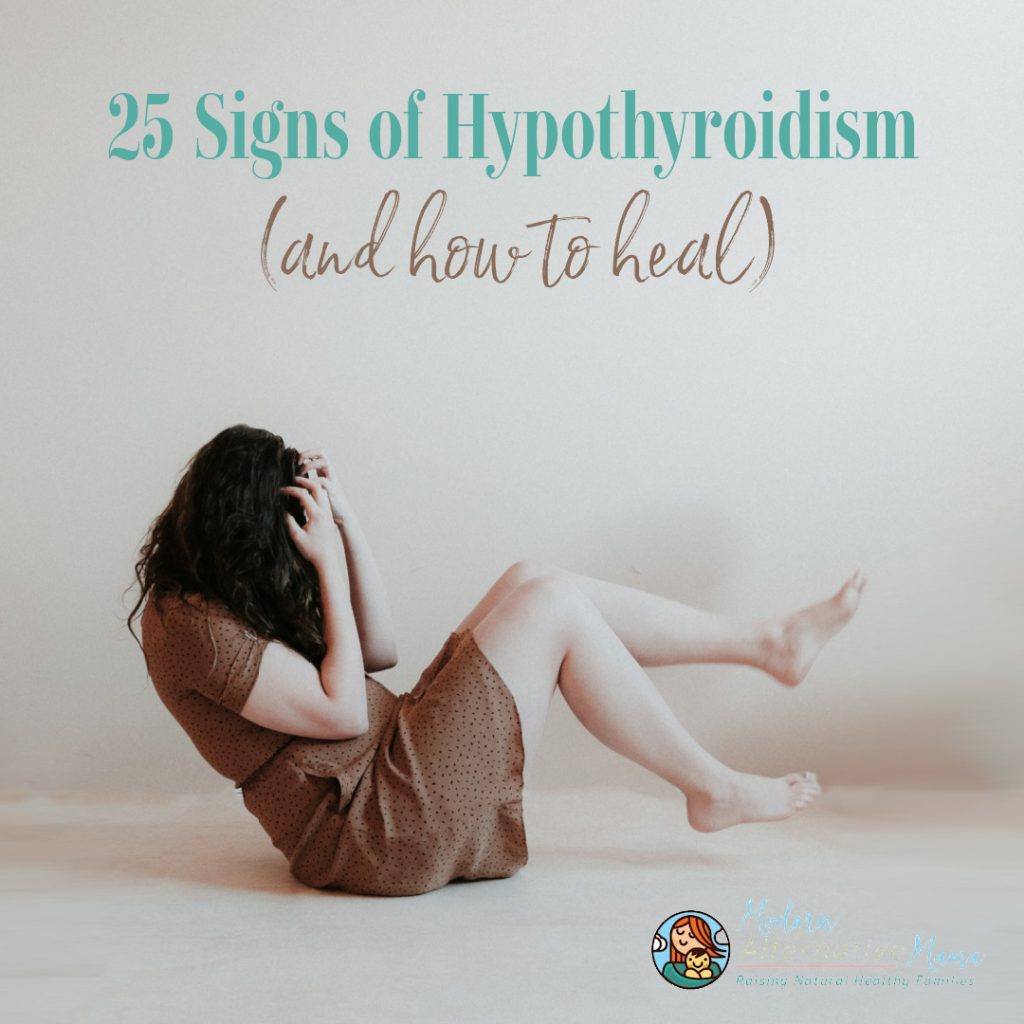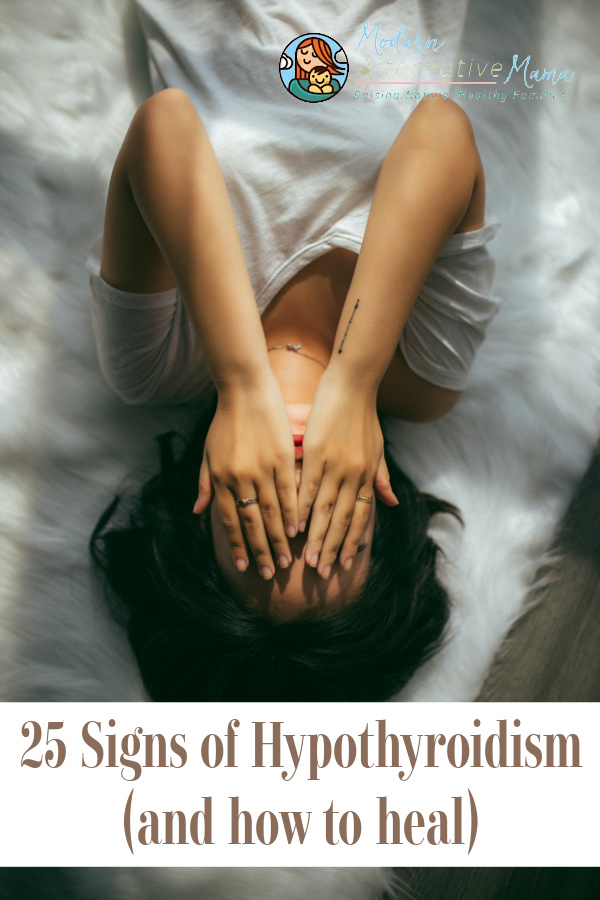Though hypothyroidism is a common issue among women, it doesn’t have to run your life. Find a hypothyroidism-literate doctor, start supplementing, and change your life today.
By Danielle, contributing writer
Thyroid function affects the entire body, so if you have hypothyroidism, which is an underactive thyroid, you will see a host of symptoms. On the flip side, an overactive thyroid, an equally problematic condition, is called hyperthyroid. Among women, especially those in child-bearing years and menopause, hypothyroid is very common.
However, most physicians will dose medications off of TSH levels — levels that do not accurately depict what is going on in the thyroid. And to make matters worse, they prescribe T4 only, which can actually make the problem worse.
Read on to learn the symptoms of hypothyroidism, and how you can get started resolving it.
25 Signs You Have Hypothyroidism
These symptoms point to hypothyroidism. You can be hypothyroid for years without knowing, and your symptoms will likely worsen. These symptoms can be, of course, caused by other factors, and other symptoms can be occurring because of hypothyroidism, also.
- Fatigue
- Weight gain that doesn’t respond to lifestyle changes
- Depression or anxiety
- Cold extremities
- Hair loss
- Cracked skin, especially
- Thinning eyebrows
- Swollen, or “thick” skin
- Infertility
- Low blood pressure
- PMS and Menstrual issues
- Low body temperature
- Low stomach acid
- Craving sweets
- Unable to eat in the mornings
- Low or no appetite
- High heart rate or heart palpitations
- Constipation
- Thinning or broken hair
- Easily bruised
- Hand inflammation
- Inflammation of joints
- Brain fog
- Memory issues
- Hypoglycemia/low blood sugar
Resolving Hypothyroidism
How to Test for Hypothyroidism
Testing for hypothyroidism can be done with a simple blood test, however most doctors will not test the right levels. Find a doctor who is educated on the true issues of hypothyroidism, or test yourself online.
You want to avoid a doctor who doses off of TSH, and prescribes T4 only, which can drive you into further hypothyroidism.
Thyroid Supplementation
Sometimes you’ve been hypothyroid for so long, you may need to, or want to, consider prescription supplementation. T3 is the pure thyroid hormone that supplies your body’s energy, and it’s what is lacking in hypothyroid. The synthetic form (T3) can be prescribed based on your symptoms, or natural desiccated thyroid (NDT) (normally from pig), which would replace your T3 needs.
Thyroid Co-Factors
It’s important to add in the co-factors that your thyroid needs. Selenium and iodine are critical to thyroid function. Selenium should be supplemented before iodine, and can be in supplement form or from raw, organic brazil nuts. Nascent or Lugol’s iodine should then be started slowly, as it can trigger a detoxification in those who are seriously deficient.
You also want to test your iron and ferritin levels before supplementing for your thyroid, since iron plays a critical component to the T3 hormone, as well. Most of us, even vegetarians, are consuming enough iron, but have leaky gut and so do not absorb the nutrient. Fixing the gut through diet, adding slippery elm bark or aloe vera, and apple cider vinegar or Swedish bitters before meals can greatly help increase your iron absorption.
Changing your Lifestyle
Often, hypothyroid symptoms are worsened by a busy and stressful lifestyle. Exercise, time for self-care, dealing with emotional trauma, changing your mental thoughts can all help lessen hypothyroid symptoms. Changing your diet is crucial, as your thyroid needs essential nutrients to function. Try a paleo or autoimmune paleo diet to help correct the issue.
There are herbs that can help support hypothyroid also. Thyroid Support is an herbal formula for thyroid support and total body wellness. The herbs include ashwagandha (1), amla berry (2), licorice root (3), brahmi leaf (4), and milk thistle seed (5). It also supports a healthy liver and stress response.
My Hypothyroidism Story
During college, I held down four part time jobs, full college credits, and somewhat of a social life. I got married (too) quickly after graduation, and began what was a short and tumultuous marriage, plagued by domestic violence. After being a single mom for five years, I was exhausted and could tell my brain function was rapidly deteriorating.
I started getting symptoms of fibromyalgia and rheumatoid arthritis, and knew that it was time to make a change. I ate very well, but decided to start the autoimmune paleo diet. I took my own blood test to find out I was severely hypothyroid, with pooling T3, showing that I had an iron issue – which I knew.
I worked on healing my gut, and saw a hypothyroid-literate doctor. He took my history, and we discovered that my hypothyroidism started in high school when I had an active EBV infection. I started supplementing iodine, which helped tremendously. I couldn’t believe how much better I felt. I also took T3 for a year to help get my levels back up to where they needed to be.
Though I am still tired some days, I am nowhere near the autoimmune cliff I was at a few years ago.







